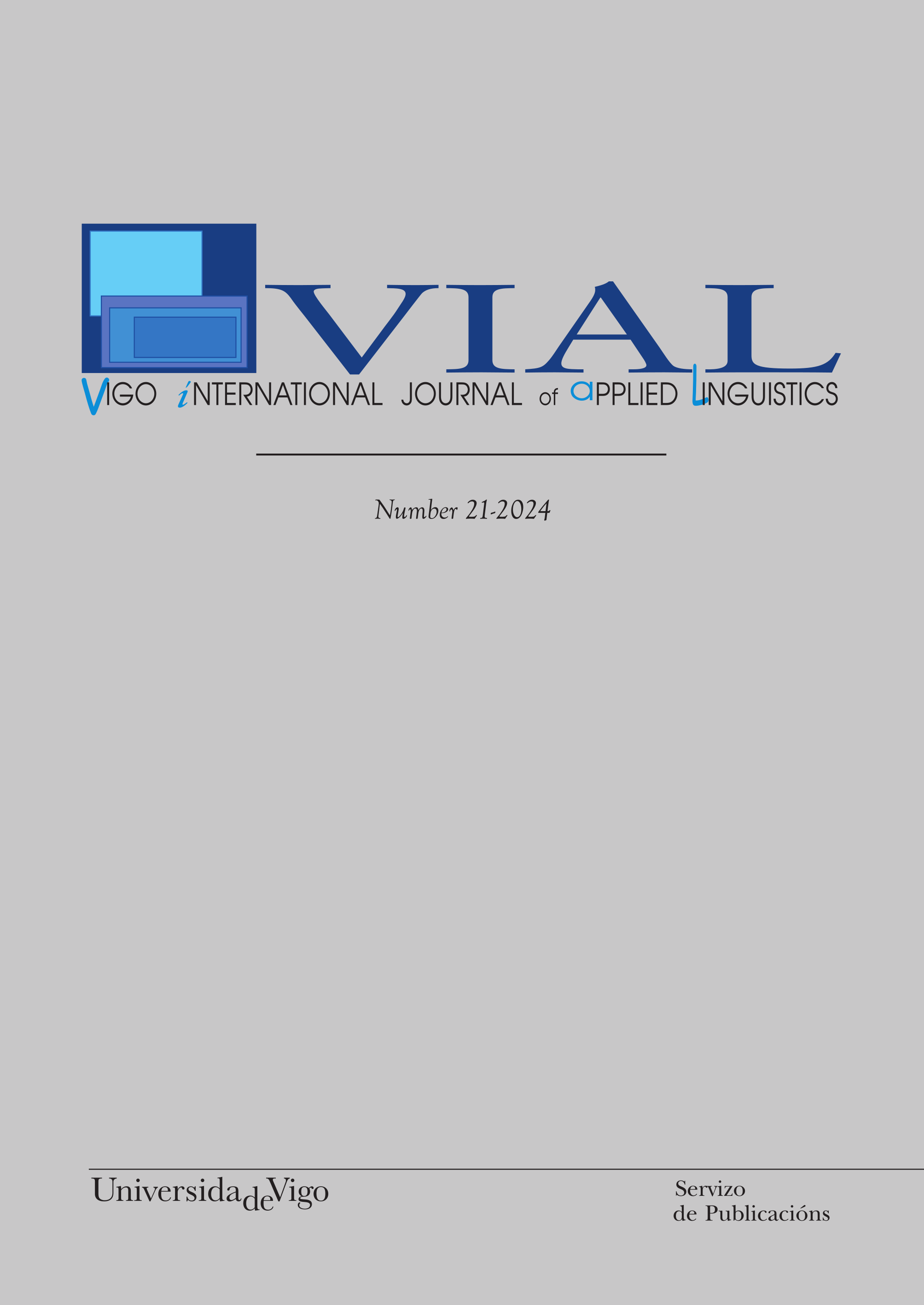Online processing and vocabulary learning in massed versus spaced repeated reading
DOI :
https://doi.org/10.35869/vial.v0i21.4402Mots-clés :
repeated reading, input spacing, online processing, vocabulary learning, eye-trackingRésumé
The present exploratory study analyzed the effect of two different implementations of repeated reading (massed vs. spaced) on the online processing of the text and unknown vocabulary, as well as on incidental vocabulary learning. The relationship between processing and learning of target vocabulary in massed versus spaced repeated reading was also examined. A group of Spanish undergraduate students read the same text in English three times under either a massed (three times consecutively) or spaced (once a week) schedule, while their eye movements were recorded. Knowledge of a set of target words from the text was assessed in immediate and delayed multiple-choice, meaning-recognition tests. The results of this study suggest that repeated reading led to a decrease in total reading time and number of fixations in the massed group but not in the spaced group. However, there were no significant differences between the two conditions in the processing of target words or immediate vocabulary gains. Finally, it was observed that longer processing time on the target words was related to larger immediate vocabulary gains, but only in the spaced group.
Téléchargements
Téléchargements
Publiée
Numéro
Rubrique
Licence
Revistas_UVigo es el portal de publicación en acceso abierto de las revistas de la Universidade de Vigo. La puesta a disposición y comunicación pública de las obras en el portal se efectúa bajo licencias Creative Commons (CC).
Para cuestiones de responsabilidades, propiedad intelectual y protección de datos consulte el aviso legal de la Universidade de Vigo.



